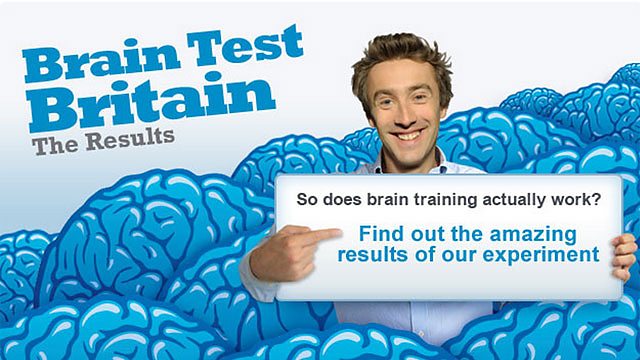BBC brain training study apparently retracts previous overgeneralized claim that “brain training doesn’t work”
 Online brain training ‘helps older adults with everyday tasks’ (BBC):
Online brain training ‘helps older adults with everyday tasks’ (BBC):
“Nearly 7,000 people aged 50 and over signed up for the six-month experiment, launched by BBC TV’s Bang Goes The Theory…Some of the volunteers were encouraged to play online brain training games for 10 minutes at a time, as often as they wished. The others — the control group — were asked to do simple internet searches
…The researchers found after six months, those who played “brain training” games for reasoning and problem-solving kept their broader cognitive skills better than those who did not.
And people over 60 who played these games reported better scores for carrying out essential everyday tasks, the Journal of Post-acute and Long Term Care Medicine reports.”
Study: The Effect of an Online Cognitive Training Package in Healthy Older Adults: An Online Randomized Controlled Trial (Journal of Post-acute and Long Term Care Medicine). From the abstract:
- Introduction: Cognitive training (CT) offers a potential approach for dementia prevention and maintenance of cognitive function in older adults. Online delivery provides a cost-effective means of implementing CT compared with in-person interventions, with the potential of providing an effective public health intervention for risk reduction.
- Results: A total of 2912 adults older than 60 (6742 > 50) participated. General and reasoning packages conferred benefit to IADL (P = .008, P = .011), reasoning (P < 0.0001, P < .0001), and VL (P = .007, P = .008) at 6 months. Benefit in reasoning was evident from 6 weeks. Other benefits developed over 6 months. Analysis of participants with age-associated impairment also showed the same pattern of benefit. A clear dose-response effect was seen.
- Conclusions: Online CT confers significant benefit to cognition and function in older adults, with benefit favoring the Reasoning package. Scale of benefit is comparable with in-person training, indicating its potential as a public health intervention. Impact on the group with age-associated impairment indicates a particular sensitivity to this at-risk group, which merits further investigation.
To learn more:
- BBC “Brain Training” Experiment: the Good, the Bad, the Ugly
- Scientific critique of BBC/ Nature Brain Training Experiment
- Solving the Brain Fitness Puzzle Is the Key to Self-Empowered Aging
- To reach your cognitive potential across the whole lifespan, augment healthy lifestyle with brain training
- Can brain training work? Yes, if it meets these 5 conditions


